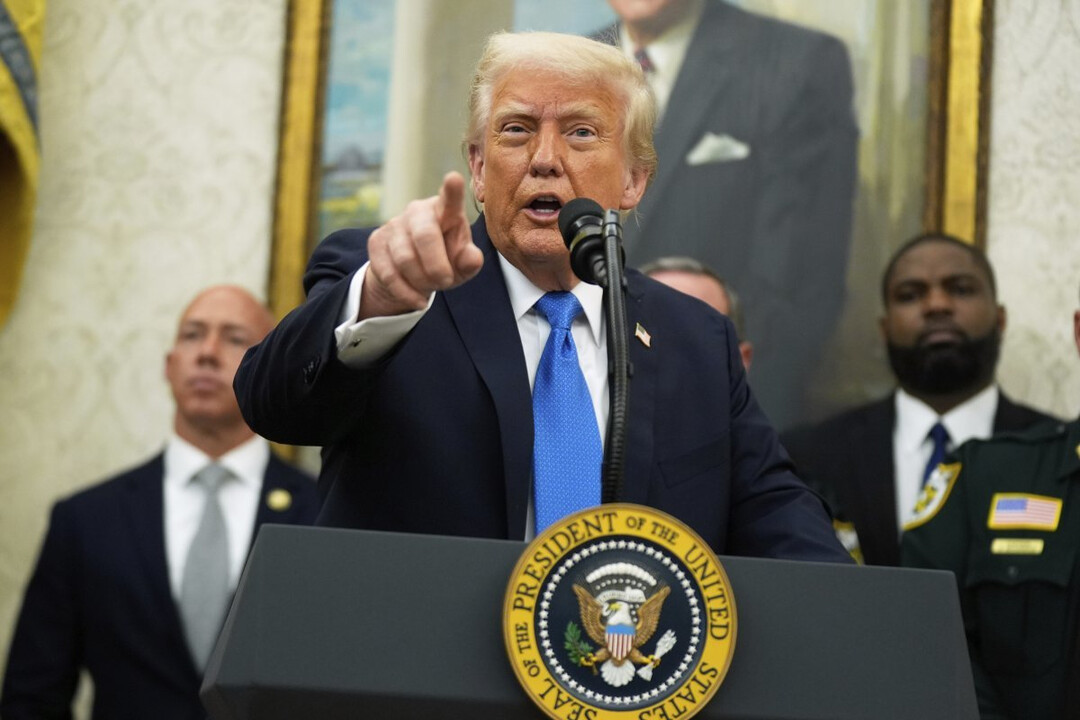
Washington D.C. – In a significant shift in its defense posture towards its Asian allies, the Donald Trump administration has formally demanded that countries like South Korea increase their defense spending to 5% of their Gross Domestic Product (GDP). This marks the first time a specific figure has been publicly stated for Asian partners, mirroring a stringent benchmark previously applied to NATO member states. The announcement, made on June 19, comes amidst escalating global tensions and a strategic reorientation by the U.S. to counter a rising China.
The demand was officially articulated by Sean Parnell, spokesperson for the U.S. Department of Defense, in a written response to a query from Dong-A Ilbo. Parnell cited recent statements by Secretary of Defense Pete Hegseth, including remarks made during a Senate hearing on the DoD budget proposal on June 18 and at the Shangri-La Dialogue. "As Secretary of Defense Pete Hegseth mentioned... America's European allies are also setting standards for allies, especially in Asia," Parnell stated, adding, "That standard is spending 5% of GDP on defense."
The implications for South Korea are substantial. Its current defense budget for this year is approximately 61.2 trillion Korean Won, which accounted for roughly 2.39% of last year's nominal GDP. Raising this to 5% would necessitate an expenditure exceeding 130 trillion Won annually, a dramatic increase that analysts warn could force severe cuts in crucial domestic budgets, including welfare and education, to accommodate such a financial burden. Historical data from SIPRI indicates South Korea's military expenditure in 2025 was around $45.6 billion, projecting a modest 2% compound annual growth rate to $50.1 billion by 2030, far below the newly proposed benchmark.
Hegseth's Vision and the Indo-Pacific Strategy
Secretary Hegseth, who was sworn into his role on January 25, 2025, with a mandate from President Trump to "bring the warrior culture back to the Department of Defense" and focus on "lethality, meritocracy, warfighting, accountability and readiness," has been a vocal proponent of increased allied contributions. A former Army National Guard officer with service in Iraq and Afghanistan, Hegseth outlined the U.S. vision for the Indo-Pacific at the Shangri-La Dialogue. He emphasized "peace through strength" and the imperative to re-establish deterrence in the region. Hegseth stressed the critical need for allies to bolster their defense capabilities and rebuild their defense industrial bases, specifically noting China's military buildup and the potential for "devastating consequences" should Beijing attempt to alter the balance of power, particularly regarding Taiwan. While pressing for increased spending, Hegseth also clarified that the U.S. "is not here to pressure other countries to embrace and adopt our politics or ideology; we are not here to preach to you about climate change or cultural issues; [and] we are not here to impose our will on you."
This heightened U.S. pressure for defense expenditure is rooted in the Trump administration's broader strategy to redefine the roles of U.S. forces stationed overseas, including U.S. Forces Korea, to focus more acutely on deterring China. Washington emphasizes the need for strategic flexibility in deploying its military assets, urging allies like South Korea and Japan to develop robust self-defense capabilities to potentially assume roles currently filled by U.S. troops. The overarching aim is to establish credible power, reinforce alliances, and restore industrial sovereignty in the face of China's growing military influence in the Indo-Pacific, which is now considered central to U.S. national security.
Concerns Over Extended Deterrence and Upcoming NATO Summit
The aggressive push for increased defense spending has sparked concerns that it might precede a reduction in the U.S. commitment to extended deterrence, or the "nuclear umbrella," provided to allies. Experts and regional partners, including Japan and South Korea, have increasingly voiced anxieties about a potentially diminishing American nuclear umbrella in a multipolar "Third Nuclear Age." Discussions are underway to strengthen extended deterrence through conventional strategies and mini-lateral partnerships, but the underlying fear of minimized future deployment of U.S. strategic assets remains.
The timing of this official demand is particularly notable, coming just ahead of the high-stakes NATO Summit scheduled for June 24-25 in The Hague, Netherlands. Speculation is rife that President Trump might directly press South Korea on defense spending during this summit. The South Korean Presidential Office is reportedly deliberating President Lee Jae-myung’s attendance, weighing the benefits of a potential summit with the U.S. president and strengthening alliances against the risks of being drawn into new geopolitical pressures, especially concerning the intensifying conflict between Israel and Iran.
South Korea has consistently participated in NATO summits as one of the Indo-Pacific Four (IP4) partners. President Lee Jae-myung’s administration, which advocates for "pragmatic diplomacy," faces a delicate balancing act. While attendance offers a crucial platform for direct engagement with U.S. and allied leaders and opportunities for defense and nuclear energy exports, an absence could signal a deviation from past foreign policy principles and potentially erode trust with key allies, particularly the United States. An official from the Presidential Office stated on June 20 that Seoul and Washington are "steadily maintaining their relationship to secure any necessary capabilities and readiness for the defense of the Korean Peninsula and regional peace and stability in the future," emphasizing a comprehensive approach to the evolving situation.
[Copyright (c) Global Economic Times. All Rights Reserved.]




























